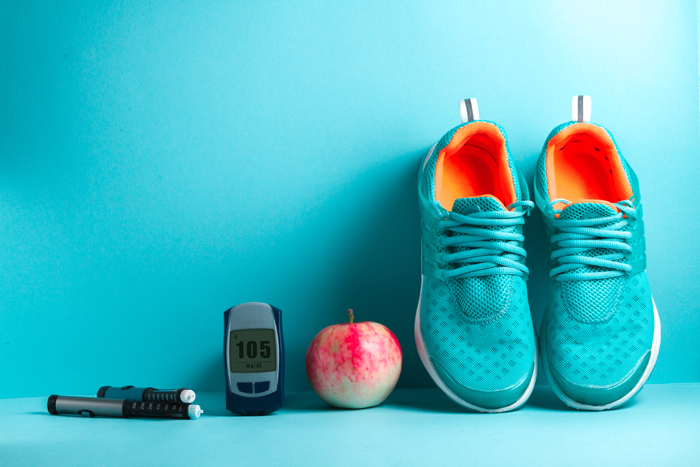Diabetes Mellitus Treatment in MRC Nagar, Chennai
Diabetes is a lifestyle disease that restricts the body’s ability to process blood glucose, also known as blood sugar. Diabetes affects around 1 in 4 people above the age of 65 years. Increased blood sugar levels for a long duration can lead to serious health issues and hence, we should manage diabetes effectively to stay healthy.

What are the different types of diabetes?
Diabetes is of three types:
- Type 1 diabetes - This type of diabetes occurs when the body fails to produce insulin, it is also called juvenile diabetes. Patients diagnosed with type 1 diabetes are dependent on artificial insulin.
- Type 2 diabetes - In type 2 diabetes, the body produces insulin, but the cells in the body do not respond effectively.
- Gestational diabetes - This type of diabetes occurs during pregnancy, when the body produces less insulin. Gestational diabetes does not occur in all women and is resolved after delivery.
The less common types of diabetes are cystic fibrosis-related diabetes and monogenic diabetes.
What are the symptoms of diabetes?
Some common symptoms of diabetes are:
- Increased thirst
- Unintentional weight loss
- Extreme fatigue
- Increased hunger
- Blurred vision
- Frequent urination
- Sores that do not heal
What causes diabetes?
- Type 1 diabetes - The insulin-producing cells in the pancreas are destroyed. The exact cause of developing type 1 diabetes is unknown.
- Type 2 diabetes - It develops thanks to a combination of lifestyle changes and genetics. An obese person is at a higher risk of being diagnosed with diabetes. Additionally, family members with a medical history of diabetes are more prone to be diagnosed with type 2 diabetes.
- Gestational diabetes - This is caused by hormonal changes in the body of women during pregnancy.
When do you need to see a doctor?
Diabetes if untreated for a long time can lead to serious medical conditions, but with professional help and lifestyle changes you can manage the condition. Thus, if you witness any of the symptoms of diabetes, you should immediately get in touch with a healthcare professional and start treatment at the earliest to avoid further medical complications.
Request an appointment at Apollo Spectra Hospitals, MRC Nagar, Chennai.
Call 1860 500 2244 to book an appointment.
What are the risk factors?
- Obesity
- Age 45 years or older (above 25 years of age in gestational diabetes)
- Family history of diabetes
- Physically inactive
- High blood pressure
- High cholesterol levels
- High triglycerides
- Gestational diabetes during last pregnancy
What are the complications?
Some of the complications associated with diabetes are:
- Nephropathy
- Heart disease
- Heart attack
- Hearing loss
- Retinopathy
- Stroke
- Bacterial infections
- Dementia
- Depression
- Foot infection
- Neuropathy
How can diabetes be prevented?
Managing diabetes is a long-term commitment. Some of the ways to prevent diabetes and enjoy a healthier life are:
- Avoid smoking.
- Keep a check on the blood pressure levels.
- Your cholesterol should be under control.
- Schedule regular medical check-ups.
How can we treat diabetes?
Healthcare professionals treat different types of diabetes with different medications such as oral medicines or injections:
- Insulin injection is one of the main treatment options for type 1 diabetes, it helps to replace the hormone in the body that is not able to produce. Some of the commonly used insulins are rapid-acting insulin, short-acting insulin, intermediate-acting insulin and long-acting insulin.
- For the treatment of type 2 diabetes, only diet and exercises are not enough, a healthcare professional would also suggest a few medications such as alpha-glucosidase inhibitors, biguanides, meglitinides, sulfonylureas, and so on.
- You need to monitor your blood glucose levels on a regular basis in gestational diabetes. Along with lifestyle changes, i.e. changes in diet, the doctor would recommend insulin to control the sugar levels.
Conclusion
Diabetes is a metabolic disease that leads to an increase in blood sugar levels. If high blood sugar levels are untreated, then these can damage other parts of the body such as kidneys, nerves, eyes, etc. Genetics and lifestyle factors play an important role in the diagnosis of diabetes in an individual.
According to the American Diabetes Association, the blood sugar level before meals should be 80-130 and after meals it should be less than 180.
No, diabetes is a life-long disease. Diet, exercise and medication can help to manage diabetes and avoid further medical complications.
The pancreas
Symptoms
Our Top Specialities
NOTICE BOARD
CONTACT US
CONTACT US
 Book Appointment
Book Appointment


.svg)
.svg)
.svg)
.svg)








